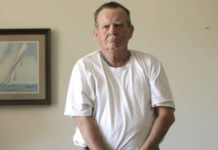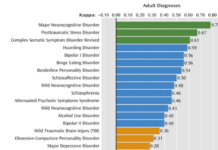Testifying in Vermont: Forced Drugs
Vermont Governor Shumlin recently suggested a change to state law that would accelerate the process under which a person could be forced to take antipsychotic drugs against her will. The House Human Services Committee reviewed this proposal and I was asked to testify. What follows are my comments.
Nuanced History of Asylums Shows Context Matters
A bottom-up approach to understanding the history of asylums allows us to learn from past successes and failures in the mental health system.
Why Do We Say That Mental Health Detention is Discrimination?
The disability community, including users and survivors of psychiatry, has sent a letter (drafted and circulated by WNUSP) to the UN Human Rights Committee urging that treaty monitoring body to follow the Committee on the Rights of Persons with Disabilities in prohibiting all mental health detention. The signatories came from all regions of the world and include user/survivor organizations, disability organizations, other human rights organizations and individual experts. Since our letter is quite technical in pointing out the divergence of the Human Rights Committee's position from that of the CRPD, which is a higher standard of human rights protection, I would like to bring out some additional points that may be helpful in our advocacy.
Crazy Talk: The Dangerous Rhetoric of Mental Illness
In this piece for Eidolon, Jessica Wright discusses the ways that labeling people as "crazy" and "mentally ill" has served to justify oppression throughout history....
Bring Back the Asylum?
This week a commentary, written by members of the University of Pennsylvania Department of Medical Ethics and Health Policy and titled “Improving Long-term Psychiatric Care: Bring Back the Asylum” was published in JAMA Online. The authors recommend a return to asylum care, albeit not as a replacement for but as an addition to improved community services and only for those who have “severe and treatment-resistant psychotic disorders, who are too unstable or unsafe for community based treatment.” The authors seem to accept the notion of transinstitutionalization (TI) which suggests that people who in another generation would have lived in state hospitals are now incarcerated in jails and prisons. While I do not agree, I do find there is a need for a safe place for people to stay while they work through their crisis.
The Nazi History Behind “Asperger”
From The New York Times: Although the official diagnosis of Asperger's disorder has recently been dropped from the DSM, it is still included in the...
Psychiatry: We Need a Truth and Reconciliation Commission in Mental Health
My name is Leah Harris and I'm a survivor. I am a survivor of psychiatric abuse and trauma. My parents died largely as a result of terrible psychiatric practice. Psychiatric practice that took them when they were young adults and struggling with experiences they didn’t understand. Experiences that were labeled as schizophrenia. Bipolar disorder. My parents were turned from people into permanent patients. They suffered the indignities of forced treatment. Seclusion and restraint. Forced electroshock. Involuntary outpatient commitment. And a shocking amount of disabling heavy-duty psychiatric drugs. And they died young, from a combination of the toxic effects of overmedication, and broken spirits.
Mental Health Seclusion Rates Increase
From Stuff: More than 800 New Zealand mental health patients were held in seclusion at some point last year, representing a six percent increase in...
Doctors Tortured Patients at Ontario Mental-Health Centre
From The Globe and Mail: A judge has recently ruled that patients at a mental health facility in Ontario were tortured by doctors over a...
An Open Letter to Colin Powell
Dear Colin Powell: You shared that your wife was diagnosed by a psychiatrist as having a ‘chemical imbalance.’ You said she was, as a result, put on psychotropics and found success after doing so. I’m not going to attempt to take that away from her, but whereas so many issues encompass shades of gray, the chemical imbalance theory does not. The chemical imbalance theory is not just unproven; It is debunked. But you need not take my word for it.
Conquering Benign Paternalism
On Wednesday, July 18, the Heritage Foundation sponsored a forum entitled “How to Bring Sanity to our Mental Health System.” It featured Dr. E....
On the Link Between Psychiatric Drugs and Violence
One of psychiatry's most obvious vulnerabilities is the fact that various so-called antidepressant drugs induce homicidal and suicidal feelings and actions in some people, especially late adolescents and young adults. This fact is not in dispute, but psychiatry routinely downplays the risk, and insists that the benefits of these drugs outweigh any risks of actual violence that might exist.
“All for the Best of the Patient”
For psychiatric ‘help’ to happen by force is a paradox and makes absolutely no sense. It can destroy people's personality and self-confidence. It can lead, in the long run, to physical and psychological disability. My dear daughter Luise got caught in this ‘helping system’ by mistake, but she didn't make it out alive. I'm sad to say I later discovered that the way Luise was treated was more the rule than the exception.
The Evidence of Our Convictions
We are an unlikely duo, sharing secrets only known to insiders, the inmates and staff of Bader 5, Boston Children's Hospital's adolescent psychiatric unit. I am the nurse who blew the whistle that no one heard in 2010, she is the teenager who was imprisoned on Bader 5 for nine months in 2013. We met for the first time on this past Thanksgiving Day at Yale New Haven Children's Hospital, where she has been a *medical* patient for the past nine weeks.
Are Neuroleptics “Anti-Psychotic”? Harrow’s 20-Year Outcomes
Martin Harrow along with his colleagues T.H. Jobe and R. N. Faull has published another paper on the long term outcome of people who experienced a psychotic episode. Funded by a grant from the Foundation for Excellence in Mental Health Care, this paper adds to our knowledge of an extremely important and valuable study.
The FBI and Defense Department are Investigating UHS Hospitals
From BuzzFeed News: America's largest chain of psychiatric hospitals, United Health Services, is currently under investigation by at least three federal agencies including the FBI...
The Silence: The Legacy of Childhood Trauma
In this piece for The New Yorker, Junot Diaz reflects on the impact of his experience of childhood sexual abuse and the ways that therapy...
How Neoliberalism is Damaging Your Mental Health
From The Conversation: Neoliberal policies and conditions may be at least partly responsible for the growing mental health crisis and decline in collective well-being in...
Psych Ward Reviews: A Yelp for Psychiatric Facilities
From Undark Magazine: A new app, Psych Ward Reviews, gathers anonymous reviews of patients' experiences with inpatient treatment at public and private psychiatric and general...
The Need to Address Suicide in Prisons
Rates of suicide in prison are significantly higher than in the general population.
May the ‘Force’ NEVER EVER Be With You! The Case for Abolition
A growing body of evidence indicates that forced “treatment” in today’s mental health system, including all forms of forced hospitalization and forced drugging, may actually cause FAR more harm than good. Recent published studies and articles point towards evidence of physical and psychological harm that, in some cases, may contribute to more suicidality and patient deaths, as well as overall worse outcomes in a person’s state of recovery.
Your Pills Are Spying On You
From Pacific Standard: The new Abilify MyCite pill, which contains a digital sensor that tracks whether a patient has ingested the drug, has the potential...
Is School Driving Kids Literally Crazy?
From FEE: School may have a negative impact on children's and teens' mental health: children's psychiatric emergency room visits drop precipitously over the summer and increase...
Why We Need to Get Better at Critiquing Psychiatric Diagnosis
In this piece for Mind Hacks, Vaughan Bell, a long-term critic of psychiatric diagnosis, points out the major flaws and logical fallacies in some of...
I was Forced to Choose Between an Abortion or a Mental Hospital
In this personal essay for MarieClaire, one woman shares her story of being locked up in a mental hospital for refusing to have an abortion.
























